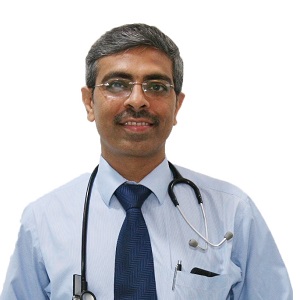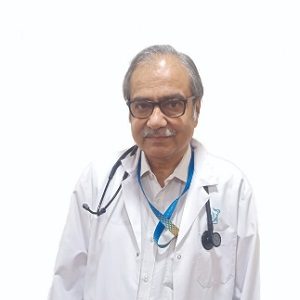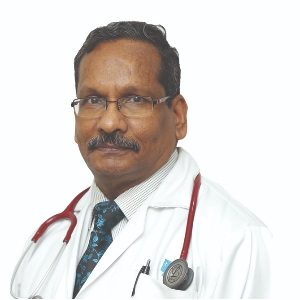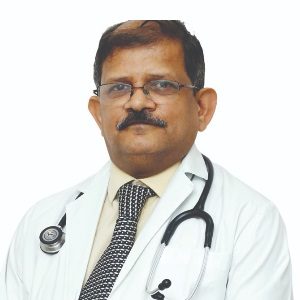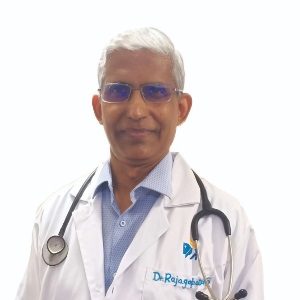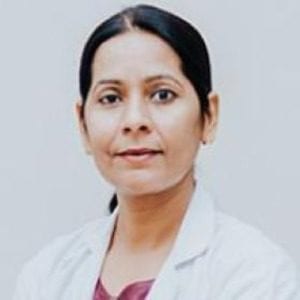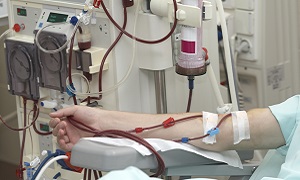Best Doctors in India for Polycystic Kidney Disease Treatment
- Top Nephrologist | Apollo Hospital, New Delhi, India
- 20+ Years Experience
- Indraprastha Apollo Hospital, New Delhi
Profile Highlights:
- Dr. Gaurav Sagar is currently working as a consultant nephrologist at Apollo Indraprastha Hospital, New Delhi. He has over ten years of experience in renal medicine with a special interest in vascular access, kidney transplant, and critical care nephrology.
- Dr. Sagar has been a pioneer in practicing and promoting Interventional Nephrology in North India and was part of the team which conducted the first ABO-incompatible transplant in North India.
- Nephrologist, Chennai, India
- Over 43 years’ experience
- Apollo Hospitals Greams Road
Profile Highlights:
- Dr. Prakash K C is one of the senior Nephrologists from Tamil Nadu, with over 43 years of experience managing renal disorders.
- He provides consultation and a wide range of medical services like Ureteroscopy (URS), Kidney Transplant, Hemodialysis, etc. His team ensures a friendly environment for patients.
- Dr. Prakash is involved in many pieces of research and got his work published in periodicals and textbooks.
- Nephrologist, Chennai, India
- Over 29 years’ experience
- Apollo Hospitals Greams Road
Profile Highlights:
- Dr. B Subba Rao is one of the best Nephrologists in Tamil Nadu, with over 29 years of experience.
- Dr. Rao offers consultation and various services like Nephrolithotripsy, Hemodialysis, Hemodiafiltration (HDF), Percutaneous Nephrolithotripsy, CKD, Kidney Stone Treatment, Kidney Failure Treatment, etc.
- Dr. Subba Rao has been awarded the Vocational Excellence Award for his contributions to the field
- Nephrologist, Chennai, India
- Over 23 years’ experience
- Apollo Hospitals Greams Road
Profile Highlights:
- Dr. Rajeev Annigeri is a well-known Nephrologist from South India with 23 years of experience in the field of renal disorders treatment.
- He went under special training in Peritoneal Dialysis from the University of Missouri, USA.
- Dr. Annigeri ensures a fully supportive environment for the patients. The doctor provides many medical services like Adrenalectomy, Kidney Transplant, Hemodialysis, Kidney Surgery, Hemodialysis, etc.
- Nephrologist, Chennai, India
- Over 29 years’ experience
- Apollo Hospitals Greams Road
Profile Highlights:
- Dr. S Rajagopalan Seshadri is one of the best Nephrologists from Tamil Nadu, with over 29 years of experience.
- Dr. S Rajagopalan provides a wide range of medical services as a specialized Nephrologist/Renal Specialist.
- He is known for excellent patient care. Patients also visit Dr. Rajagopalan for other services like Proteinuria, Kidney Transplant, Hemodialysis, Nephrectomy, Percutaneous Nephrolithotripsy, CKD, Kidney Failure, etc.
- Nephrologist, Gurugram, India
- Over 20 years’ experience
- Manipal Hospitals, New Delhi
Profile Highlights:
- Dr. Suman Lata Nayak is one of Delhi’s most prominent Transplant physicians and was the founder of the Nephrology Department at the Institute of Liver and Biliary Sciences.
- Throughout her career, she has been actively involved in clinical research. Dr. Suman Lata Nayak’s research in the field of kidney transplantation, TB, and liver disease in patients, has made a significant impact on improving protocols in India.
Best Hospitals in India for Polycystic Kidney Disease Treatment
Hospital Highlights:
- Apollo Hospitals is a private healthcare group in India, with its headquarters based in Chennai. Established in 1983 by Dr. Prathap C. Reddy, the group offers a wide range of medical treatments and services across various specialties.
- It is renowned for emphasizing innovation and utilizing cutting-edge medical technologies into patient treatment.
- Known as India’s first corporate hospital, Apollo Hospitals is often credited for pioneering the private healthcare revolution in the country.
- With clinics and hospitals located all throughout India, Apollo Hospitals is a nationwide healthcare organization. Its presence can also be found in foreign countries.
- Preventive health examinations, medical and surgical treatment, and diagnostic centres are just a few of the services that the Apollo group provides.
- The group has several centres of expertise, including Cardiac Sciences, Neurosciences, Orthopedics, Emergency Care, Cancer Care, and Organ Transplantation.
- City: Chennai, India
Hospital Highlights:
- RIMC is a multi-specialty hospital in a sprawling area of 36 acres located in Chromepet, Chennai, Tamil Nadu, India.
- The facility has 450 beds including 130 critical care beds, 9 operating rooms, modern reference laboratories and radiology services, and is conveniently located near road, rail and air transportation.
- RIMC is led and managed by world-renowned physicians committed to healthcare.
- RIMC offers the broadest range of clinical care, education, and research. The hospital offers state-of-the-art technology and modern treatment facilities designed to provide health care at an affordable cost.
- Rela Institute is driven by patient needs, comfort and confidence.
- City: New Delhi, India
Hospital Highlights:
- Fortis Hospital in Shalimar Bagh is a multi-super specialty hospital that strives to provide world-class patient care by leaving no stone unturned.
- Fortis, Shalimar Bagh, with 262 beds and a 7.34-acre footprint, provides the best level of medical care through its team of doctors, nurses, technicians, and management professionals.
- City: Bengaluru, India
Hospital Highlights:
- Established in 2007, the Apollo Hospitals Bangalore is a 300-bed multispecialty hospital situated in Bannerghatta Road, Bangalore.
- Equipped with the state-of-the-art technology, it is a leading hospital dedicated to providing healthcare needs to patients with compassion and expertise.
- It is the first hospital to have completed the highest number of Robot Assisted Heart Surgeries in India.
- Over the years, it has successfully conducted some of the rarest medical procedures such as spinal angiolipoma excision, autologous chondrocyte implantations, and tibial tuberosity shift with MPSL reconstruction.
- The Apollo Hospitals Bangalore has the reputation of performing the greatest series of airway stents in the country.
- Additionally, the hospital is known for providing comprehensive treatment in specialties such as gastroenterology, urology, gynecology, oncology, colorectal surgery, etc.
- The “The Minimal Access Surgery Centre” (MASC), one of Apollo Hospitals, Bangalore’s premier Centres of Excellence, is devoted to the use of minimally invasive surgical procedures.
- In 2013, THE WEEK-A C Nielsen, Best Hospital Survey ranked Apollo Hospitals Bangalore as the 2nd best multi-speciality hospital in Bangalore.
- City: Mumbai, India
Hospital Highlights:
- Gleneagles Global Hospital The 450-bed facility comprises of 17-stories, housing state-of-the-art infrastructure, and advanced medical care facilities.
- The hospital offers end-to-end clinical, surgical, and diagnostic services. It is equipped with a team of eminent medical professionals aided by qualified nurses and medical staff
- The Hospital offers advanced Endoscopic procedures, Hepatobiliary and Liver Surgeries, Surgical and Medical Gastroenterology, Bariatric Surgery, and Robotic surgery.
- The hospital is a center of excellence for Orthopedics, Joint Replacement, Knee Replacement, and Hip Replacement surgery.
- City: Hyderabad, India
Hospital Highlights:
- CARE Hospitals were established in the year 2000, by CARE Group.
- The multispecialty hospital has 435 beds, including 120 critical care beds, with an annual inflow of 180000 outpatients and 16,000 in-patients.
- The hospital provides specialty medical services in Cardiology, Cardiothoracic Surgery, Pediatric Cardiology, Pediatric Cardiothoracic Surgery, Neurology, Neurosurgery, Nephrology, and Urology.
- The hospital has the first dual source, 128 slice CT scanner (for high precision cardiac imaging) – the first of its kind in south India.
- The hospital offers a wide range of accommodation facilities for the convenience of its varied patient base, ranging from general wards to super deluxe rooms.
- City: Mumbai, India
Hospital Highlights:
- Fortis Hospital in Mulund is a 315-bed multi-speciality tertiary care hospital with five JCI accreditations that offers a wide variety of diagnostic and treatment services. The Fortis Hospital in Mulund delivers patient-centred treatment with cutting-edge technology, highly skilled and experienced surgeons, and paramedical staff.
- This institution houses Maharashtra’s largest multi-organ transplant centre. It is also the first heart transplant centre in western India to conduct 100 or more consecutive heart transplants in under four years. It is the only hospital in the city to have multi-organ transplants and has handled the youngest patient for angioplasty. Fortis Hospital Mulund now boasts the first advanced surgical robot in central Mumbai.
- Cardiology and heart surgery, urology, nephrology, neurosciences, orthopaedics, digestive care, emergency and critical care, and maternity care are among the services provided by the hospital.
- City: New Delhi, India
Hospital Highlights:
- Manipal Hospitals, Dwarka, is a super-specialty hospital in Dwarka, New Delhi, which is a part of Manipal Hospitals Group.
- The hospital aims to provide the best treatment on par with international standards at a fraction of the cost.
- Equipped with 380 beds, the hospital is also one of the new age hospitals which are equipped fully with state-of-the-art infrastructure, cutting-edge technology as well as the latest and advanced clinical practices. The hospital also has 13 modular Operation theatres with 118 beds which are solely meant for critical care.
- The hospital comprises internationally acclaimed doctors and highly professional and experienced hospital and medical staff who are able to provide preventive, therapeutic, and diagnostic services all under one roof.
- City: Chennai, India
Hospital Highlights:
- Located in Chennai, India, MGM Healthcare is a top multispecialty hospital that provides all medical services under one roof.
- Since its founding in 2019, MGM Healthcare has quickly become a leading national referral centre, creating several innovative flagship initiatives.
- MGM Healthcare combines next-generation medical and digital technologies to provide better patient results.
- With 12 centres of excellence, more than 400 inpatient beds, 100 intensive care unit beds, and 24/7 emergency care, MGM Healthcare leaves no chance in redefining the patient experience in Chennai.
- MGM Healthcare boasts 250+ expert doctors across 30+ departments, including Cardiology, Pulmonology, Neurology, Obstetrics & Gynaecology, and more.
- They house 12 specialized Centres of Excellence, including Neurosciences, Orthopaedics, and Multi-Organ Transplantation.
- Their team of doctors, nurses, and paramedics works together to give every patient individualized treatment.
Hospital Highlights:
- Lilavati Hospital & Research Centre is India’s premier multi-speciality tertiary care hospital and has been recognised as a global medical excellence centre.
- Lilavati Hospital & Research Centre has built an unrivalled level of trust with its patients over the years, thanks to a solid foundation that comprises cutting-edge facilities, the best medical competence, research, education, and charity endeavours.
- The hospital is quite proud of the fact that it now serves patients from all kinds of backgrounds, not just from the United States but from all around the world.
- The hospital has a total of 323 beds, one of the largest Intensive Care Units (ICUs), 12 Operation Theatres with modern amenities, over 300 consultants, and almost 1,800 personnel.
Polycystic Kidney Disease
Symptoms
In many cases, people can live with PKD for years, without experience any signs and symptoms, which are associated with the disease. A cyst typically needs to grow half an inch or larger before you might be able to notice any symptom of the disease.
Some of the symptoms of this ailment include:
- Blood in the urine
- Frequent urination
- Pain or heaviness in the back
- Pain or tenderness in the abdomen
- Skin that bruises easily
- Fatigue
- Pale skin color
- Pain in the sides
- Urinary tract infection
- Kidney stones
- Joint pain
- Nail abnormalities
If you notice yourself or anyone close to you, develop any signs or symptoms of polycystic kidney disease, then it is best to see your doctor as soon as possible.
Types & Causes
Polycystic kidney disease is generally inherited. Although, in a few cases, it may develop in people having other serious kidney problems. The three main types of PKD include:
Autosomal Dominant PKD (ADPKD)- Autosomal dominant PKD, which is also termed adult PKD, accounts for around 90 percent of the cases. People having a parent with PKD has a 50 percent chance of developing this condition.
Symptoms generally occur later in life, between the ages of 30 and 40, though few people can begin to experience symptoms in childhood as well.
Autosomal Recessive PKD (ARPKD)- Autosomal Recessive PKD is much less common as compared to ADPKD. It is also inherited, but to develop ARPKD, both parents must carry the gene for the disease.
Carriers of ARPKD won’t show any symptoms if they have only one gene. However, they will have ARPKD if they inherit two genes from each parent. Four types of ARPKD exist, which include:
- Prenatal form, which is present at birth.
- Neonatal form can occur within the first month after birth.
- Infantile form can occur when a child is 3 to 12 months old.
- Juvenile form can occur after a child is 1 year old.
Acquired cystic kidney disease- Acquired cystic kidney disease (ACKD) is not inherited and it generally occurs at a later stage in life.
This condition is generally seen in people who are already having other kidney problems. It is more common among people having kidney failure and people who are on dialysis.
Diagnosis
Since ADPKD and ARPKD are inherited, the doctor will first need to review your family history. They might initially need to order a complete blood count in order to look for anemia or any other signs of infections.
To diagnose all three types of PKD, your doctor can use imaging tests to look for cysts of the kidney, liver, and other organs. Imaging tests that are used to diagnose PKD include:
Abdominal Ultrasound
Abdominal CT scan
Abdominal MRI scan
Intravenous Pyelogram
Treatment
The severity of this condition can vary from person to person, even among the members of the same family. Generally, treating polycystic kidney diseases involves treating the signs, symptoms, and complications in the early stages.
Kidney Cyst Growth
Pain
Declining Kidney Function
High blood pressure
Blood in the urine
Bladder or kidney infections
Kidney failure
Aneurysms
If you are suffering from polycystic kidney disease and a family history of ruptured brain aneurysms, then your doctor might recommend regular screening for intracranial aneurysms.
If an aneurysm is discovered, then surgical clipping of the aneurysm to reduce the risk of bleeding may be an option, depending on its size. There are non-surgical treatment options as well, such as controlling high blood pressure, and high blood cholesterol. Quitting smoking is also quite beneficial.
Complications
Several complications are associated with polycystic kidney disease. They include the following:
- High blood pressure- A common complication of polycystic kidney disease is elevated blood pressure. If high blood pressure is untreated, it can cause further damage to your kidneys and may increase the risk of heart disease or stroke.
- Chronic pain- Pain is another common symptom among people with polycystic kidney disease. It generally occurs in your side or back. It is also possible that the pain is associated with a urinary tract infection, a kidney stone, or a malignancy.
- Loss of kidney function- A progressive loss of kidney function is known to be one of the most serious complications of polycystic kidney disease. Nearly half of the patients suffering from PKD have kidney failure by the age of 60. This happens because PKD can interfere with your kidneys’ ability to keep wastes from building to toxic levels. As the disease worsens, end-stage kidney disease may occur, which can require you to undergo dialysis or a transplant.
- Growth of cysts in the liver- If you are having polycystic kidney disease, then you are more likely to develop liver cysts, as your age increases. While both men and women develop cysts, cysts in women are often larger. Female hormones and multiple pregnancies can also contribute to liver cysts.
- Heart valve abnormalities- Around 25 percent of adults with polycystic kidney disease develop mitral valve prolapse. When this happens, the heart valve no longer closes properly, and this can allow blood to leak backward.
- Development of an aneurysm in the brain- A balloon-like bulge in a blood vessel in your brain can cause bleeding i.e. hemorrhage if it ruptures. People suffering from polycystic kidney disease usually have a higher risk of aneurysms. People with a family history of aneurysms are at the highest risk. You can talk to your doctor to ask if screening is needed in your case.
- Pregnancy complications- Most women having polycystic kidney disease are generally able to have a successful pregnancy. However, in some cases, women can develop preeclampsia, a life-threatening disorder. Those having high blood pressure or a decline in kidney function are more likely to develop it.
- Colon problems- Weaknesses and pouches or sacs in the wall of the colon i.e. diverticulosis can also develop in people who are having polycystic kidney disease.
Prevention
One of the best ways to prevent some of the complications of PKD is to keep your kidneys as healthy as you can.
Some of the tips to keep your blood pressure in check include eating a diet low in salt, and containing plenty of fruits and vegetables, exercising regularly and maintaining a healthy weight, quitting smoking, and reducing alcohol consumption.

